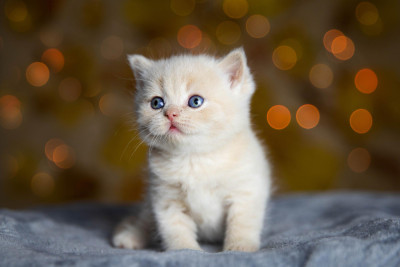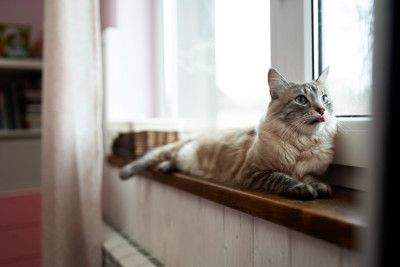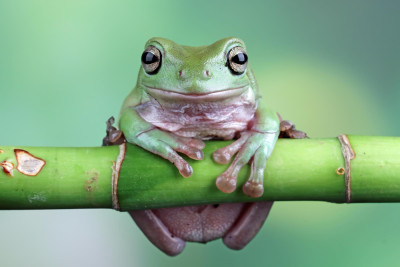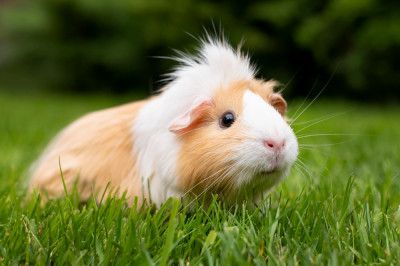1. Consider Your Living Space
Before diving into specific breeds, take a moment to assess your living situation. Your cat's breed should harmonize with the space you have available. Consider the following:
-
Apartment Living: If you reside in a smaller space like an apartment, you'll want a cat breed that adapts well to confined environments. Breeds known for their adaptability, such as the Ragdoll or the British Shorthair, can be good choices.
-
House with a Yard: If you have more room to roam, you may opt for an active breed like the Maine Coon or the Bengal, which enjoys outdoor exploration.
2. Allergies
Allergies can be a significant factor when choosing a cat breed. While no cat is entirely hypoallergenic, some breeds produce fewer allergenic proteins and may be more suitable for allergy sufferers. Consider:
- Low Allergenic Breeds: Breeds like the Siamese, Balinese, or the Siberian are known to produce fewer allergenic proteins and may be better for those with allergies.
3. Activity Level
The activity level of a cat breed can vary significantly. Some cats are highly energetic and require a lot of play and stimulation, while others are more laid-back. Think about your own activity level and how much time you can dedicate to play and exercise:
-
High-Energy Breeds: Breeds like the Abyssinian or the Bengal are known for their high activity levels and may be ideal for those who have the time and energy to engage in interactive play.
-
Laid-Back Breeds: Breeds like the Persian or the Scottish Fold are generally more relaxed and content with a quieter lifestyle.
4. Temperament and Personality
The temperament and personality of a cat are crucial considerations. Different breeds exhibit varying behaviors and characteristics:
-
Affectionate Breeds: Breeds like the Ragdoll or the Burmese are known for their affectionate and social nature, making them excellent choices for families or individuals seeking a cuddly companion.
-
Independent Breeds: Some cats, like the Norwegian Forest Cat or the British Shorthair, are more independent and may be better suited for those who value a cat's company without constant attention.
5. Grooming Needs
Cat breeds have varying grooming requirements. Some have long, luxurious coats that need frequent brushing, while others have shorter hair that's easier to maintain:
-
High-Maintenance Breeds: Breeds like the Persian or the Maine Coon require regular grooming to prevent matting and ensure their fur remains healthy.
-
Low-Maintenance Breeds: Short-haired breeds like the American Shorthair or the Cornish Rex are generally easier to groom.
6. Age of the Cat
While most people think of adopting kittens, consider whether an adult or senior cat might be a better fit for your lifestyle. Adult cats often come with established temperaments and behaviors, making it easier to match them with your preferences.
7. Health Considerations
Some breeds are more prone to certain health issues than others. Researching a breed's common health problems can help you make an informed decision:
- Genetic Health Issues: Breeds like the Persian or the Siamese may have predispositions to specific genetic health concerns.
8. Adoption vs. Breeder
Decide whether you want to adopt a cat from a shelter or rescue organization or purchase one from a breeder. Both options have their advantages and should align with your values and preferences.
9. Budget
Owning a cat comes with ongoing expenses, including food, veterinary care, and grooming. Consider the long-term financial commitment when choosing a breed.
10. Socialization and Training
Some cat breeds are more receptive to training and socialization than others. If you desire a cat that can be leash-trained, perform tricks, or interact well with other pets, research breeds with these traits.
Conclusion
Choosing the right cat breed for your lifestyle is a significant decision that requires thoughtful consideration. Take your time to research and explore different breeds, considering factors like living space, allergies, activity level, temperament, grooming needs, and more. By making an informed choice, you'll not only provide a loving home for your new feline friend but also ensure a harmonious and fulfilling companionship that suits both your and your cat's needs. Remember that adopting or purchasing a cat is a long-term commitment, so choose wisely and enjoy the rewarding experience of cat ownership.








